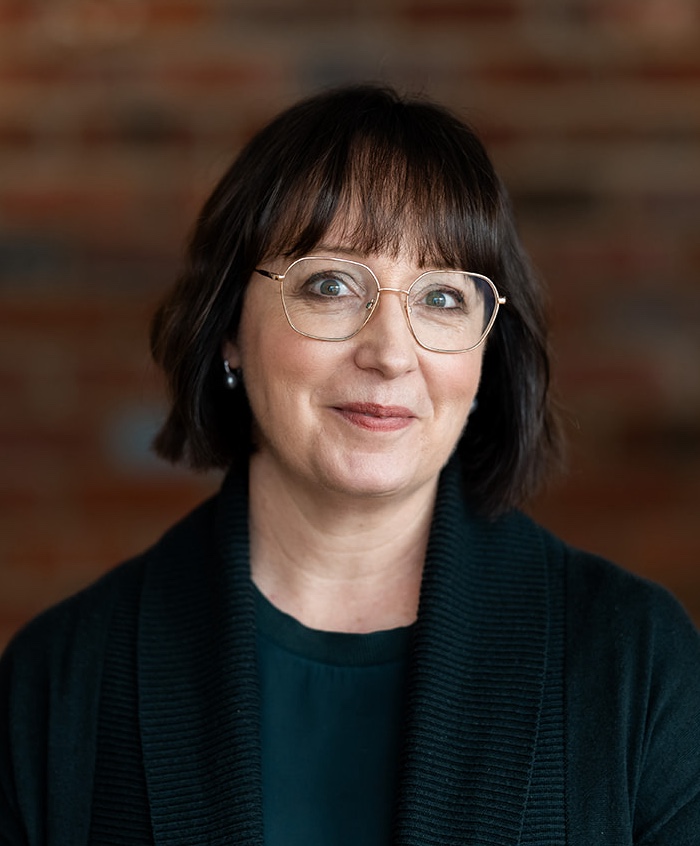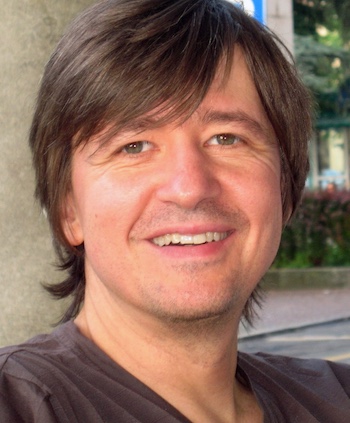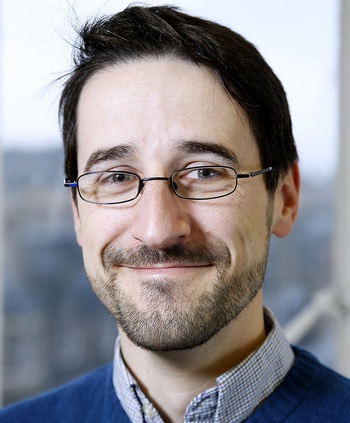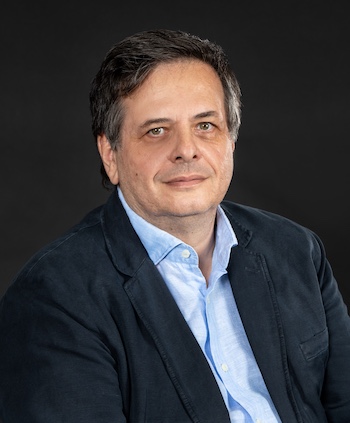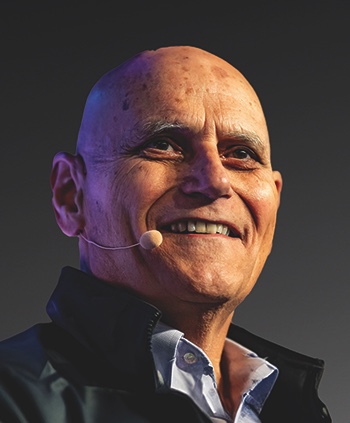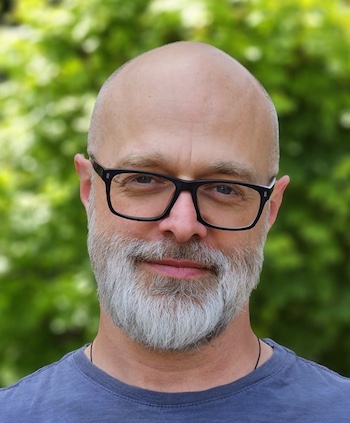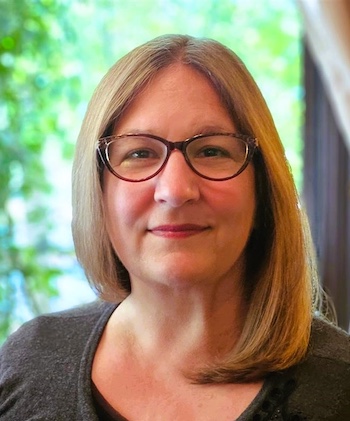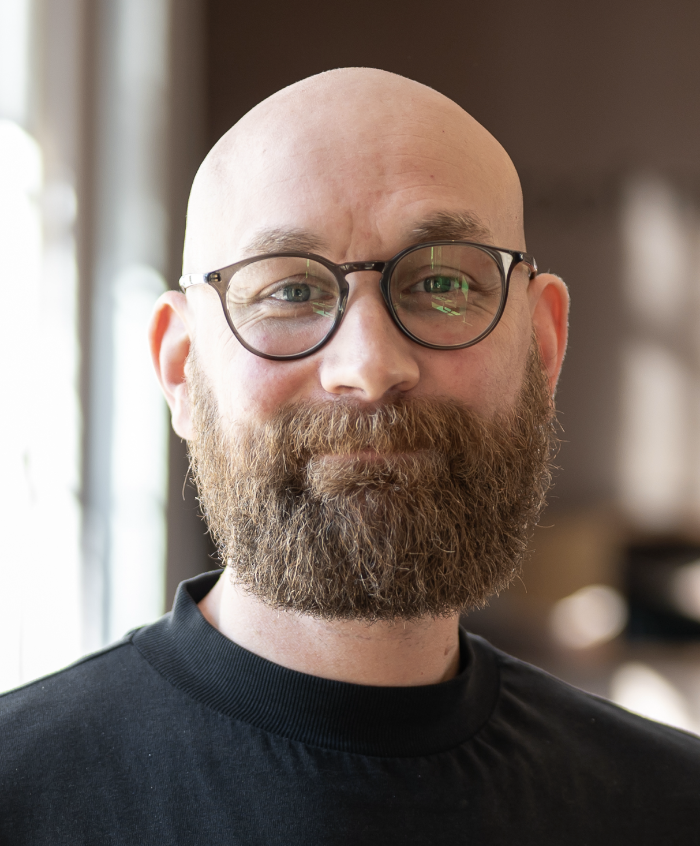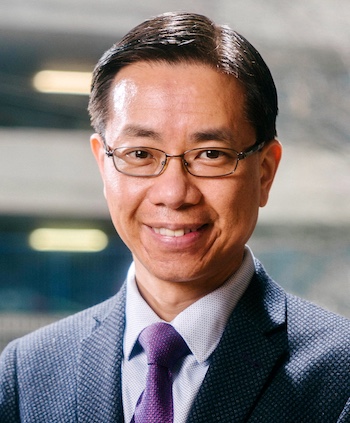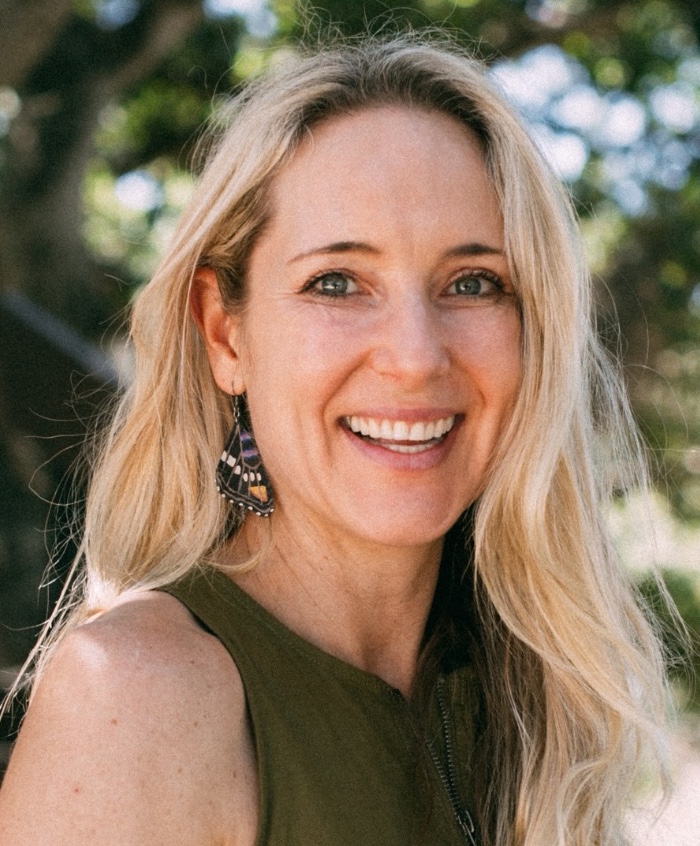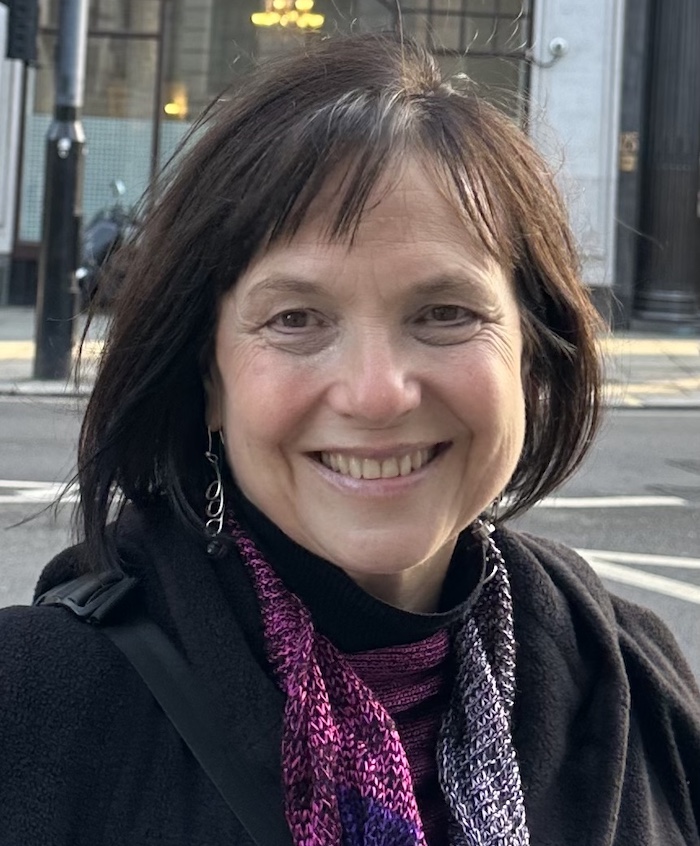
International Workshops (5:30am-1:00pm GMT): Hosted by the ACBS Board and the Conference Strategy Committee, with a concentrated effort to increase access to clinical innovations and research, in this block of workshops, speakers will explore innovative strategies for expanding the reach of contextual behavioral science and making it more accessible to people in need. These workshops aim to support learning and growth across both research and practice.
|
|
|
|
Jennifer Kemp | Ralf Steinkopff | Nuno Ferreira | Giovambattista (Nanni) Presti |
Standard Zoom text translation will be available for all live sessions.
Check the schedule in your timezone.
- 5:30 AM GMT | Navigating the Aftermath: Recovering from Neurodivergent Burnout and the Role of Self-Compassion - Jennifer Kemp, MPsych
5:30 AM -6:45 AM GMT (what about my timezone?)
Burnout in neurodivergent people is a state of deep physical, social, sensory and emotional exhaustion that can be misidentified as depression, anxiety, or experiential avoidance. In this workshop, Jennifer will offer a deeply personal perspective on the origins of burnout and her journey to recovery as an Autistic ADHDer. Participants will have an opportunity to reflect on their own experiences of burnout and how this can become intertwined with physical and mental health problems. Grounded in contextual behavioural science, participants will explore the nuanced approach required for effective recovery and the critical role of self-compassion in adjusting to a “new normal.” Participants will gain actionable insights and a deeper connection to their own lived experiences in addition to those of their clients.
Learning Objectives:
- Identify neurodivergent burnout in themselves and their clients, distinguishing it from depression, anxiety, and experiential avoidance.
- Apply key principles from contextual behavioral science and self-compassion to the process of adjusting to a "new normal" following burnout.
- Reflect on their own personal and professional experiences of burnout, fostering a deeper connection to lived experience.
ACBS members - login to view the PPT from this session at the bottom of this page.
Presenter: Jennifer Kemp, MPsych Jennifer Kemp is a privately practising clinical psychologist in Adelaide, Australia. Her affirming approach is grounded in her experience of being late diagnosed with Autism and ADHD, and the latest research. In her therapeutic practice and when training other therapists, Jennifer utilises acceptance and commitment therapy (ACT) and compassion-focused approaches to help her clients improve their mental health and cultivate greater self-acceptance, self-compassion, and pride in their neurodivergent identity. She is the co-author of "The Neurodivergent Skills Workbook for Autism and ADHD: Cultivate Self-Compassion, Live Authentically, and Be Your Own Advocate" and author of “The ACT Workbook for Perfectionism: Build Your Best (Imperfect) Life Using Powerful Acceptance & Commitment Therapy and Self-Compassion Skills.”
Jennifer Kemp is a privately practising clinical psychologist in Adelaide, Australia. Her affirming approach is grounded in her experience of being late diagnosed with Autism and ADHD, and the latest research. In her therapeutic practice and when training other therapists, Jennifer utilises acceptance and commitment therapy (ACT) and compassion-focused approaches to help her clients improve their mental health and cultivate greater self-acceptance, self-compassion, and pride in their neurodivergent identity. She is the co-author of "The Neurodivergent Skills Workbook for Autism and ADHD: Cultivate Self-Compassion, Live Authentically, and Be Your Own Advocate" and author of “The ACT Workbook for Perfectionism: Build Your Best (Imperfect) Life Using Powerful Acceptance & Commitment Therapy and Self-Compassion Skills.”*1.25 hours of CE credits are available for this session when attended live.
- 7:00 AM GMT | Wonder Childlike - Curiosity as a Stance of Openness - Ralf Steinkopff, Dipl. Psych.
7:00 AM -8:15 AM GMT (what about my timezone?)
Openness is a central concept in ACT and other third-wave approaches. It is practiced and cultivated primarily through mindfulness and flexibility.
In the workshop, an aspect that is omnipresent in ACT and other third-wave methods but somewhat hidden will be explored: awe and curiosity. They are necessary prerequisites for us to engage with change. In therapy, this is another essential stance we convey to our clients to motivate them to take new steps in their lives—and one we ourselves need to orient ourselves in both others’ and our own life worlds.
A colorful mix of ideas and concepts, practical exercises and games, demonstrations, and therapeutic strategies is planned. Willingness to participate and experiment is encouraged. It’s actually less about astonishing others than about extending an invitation to wonder.
Learning Objectives:
- Enrich your therapeutic skills with a stance of curiosity for the client and their experiences
- Invite your client to more curiosity towards their life, opportunities and reactions they get
- Get even more flexible and open for what happens in the therapeutic process
ACBS members - login to view the PPT from this session at the bottom of this page.
Presenter: Ralf Steinkopff, Dipl. Psych.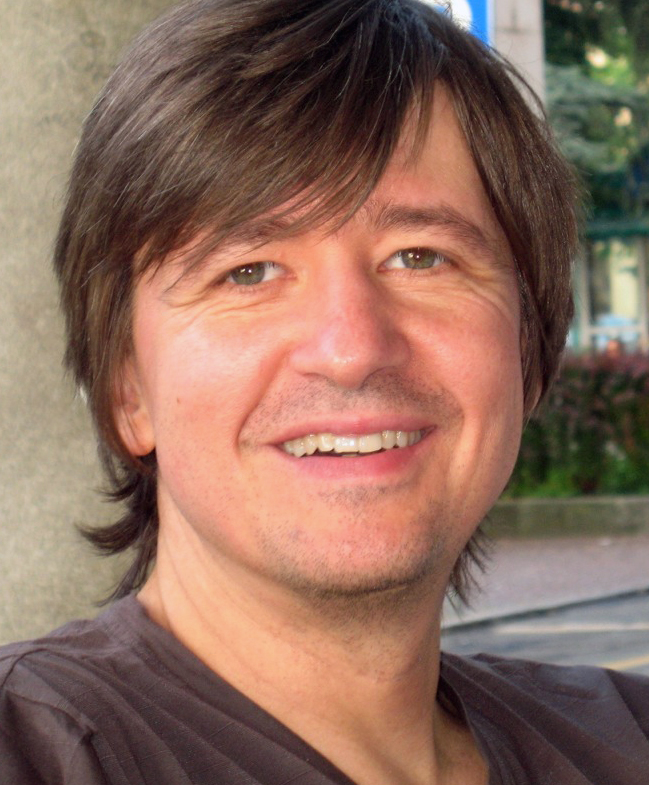 Ralf Steinkopff, Dipl.-Psych. is a licensed behavior therapist, Certified FAP Trainer, and Peer-Reviewed ACT Trainer with additional training in systemic therapy and clinical hypnosis. In his private practice, he works primarily with ACT, FAP, and Clinical RFT, focusing on psychotherapy, supervision, and continuing education for psychotherapy licensure in Germany. A former president of the German-speaking Chapter of ACBS (DGKV), Ralf has co-organized international conferences, led ACL meetups in Berlin, and is part of the organizational team for the Berlin-Brandenburg affiliation.
Ralf Steinkopff, Dipl.-Psych. is a licensed behavior therapist, Certified FAP Trainer, and Peer-Reviewed ACT Trainer with additional training in systemic therapy and clinical hypnosis. In his private practice, he works primarily with ACT, FAP, and Clinical RFT, focusing on psychotherapy, supervision, and continuing education for psychotherapy licensure in Germany. A former president of the German-speaking Chapter of ACBS (DGKV), Ralf has co-organized international conferences, led ACL meetups in Berlin, and is part of the organizational team for the Berlin-Brandenburg affiliation.*1.25 hours of CE credits are available for this session when attended live.
- 10:00 AM GMT | An introduction to Acceptance and Commitment Therapy for Disorders of Gut-Brain Interaction (DGBI) - Nuno Ferreira, Ph.D.
10:00 AM -11:15 AM GMT (what about my timezone?)
Acceptance and Commitment Therapy (ACT) is an emerging transdiagnostic psychotherapeutic approach for the treatment of long-term chronic conditions, including Disorders of Gut-Brain Interaction (DGBI), such as Irritable Bowel Syndrome (IBS) or Inflammatory Bowel Diseases (IBD). Using an experiential approach, this session intends to introduce practitioners to the ACT model of case conceptualization in DGBIs. Further to that a brief description of the model of intervention will also be provided, alongside some brief ACT consistent practices that can be easily incorporated into current patient management.
Learning Objectives:
- To create ACT consistent formulations in DGBIs
- Identify the components of and ACT intervention in DGBIs
- Apply some brief ACT exercises in practice
Presenter: Nuno Ferreira, PhD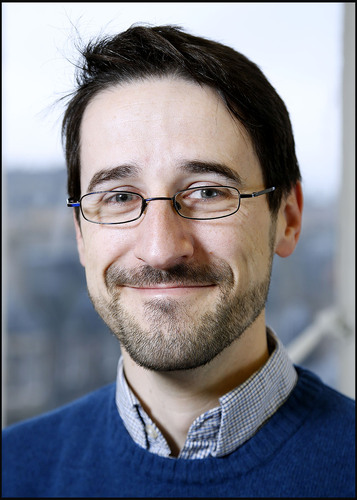 Nuno Ferreira, PhD is a Professor of Clinical and Health Psychology at the University of Nicosia, Cyprus. He holds a Licenciature in Clinical Psychology from ISPA, Portugal, and a PhD in Clinical and Health Psychology from the University of Edinburgh. After the completion of his PhD, he worked at the University of Edinburgh as a Lecturer and Senior Teaching Fellow in post-graduate programs (e.g., Doctorate in Clinical Psychology). He has been involved in several research projects and has published extensively in the areas of General Mental Health Disorders and Psychological Adjustment to Chronic Illness. Dr Ferreira’s work focuses on the use and development of Third Wave Cognitive Behavioural approaches, in particular Acceptance and Commitment Therapy (ACT), for chronic health conditions. Dr Ferreira has pioneered the use of ACT in DGBIs in the last decade and is an internationally recognized expert in the area of psychogastroenterology.
Nuno Ferreira, PhD is a Professor of Clinical and Health Psychology at the University of Nicosia, Cyprus. He holds a Licenciature in Clinical Psychology from ISPA, Portugal, and a PhD in Clinical and Health Psychology from the University of Edinburgh. After the completion of his PhD, he worked at the University of Edinburgh as a Lecturer and Senior Teaching Fellow in post-graduate programs (e.g., Doctorate in Clinical Psychology). He has been involved in several research projects and has published extensively in the areas of General Mental Health Disorders and Psychological Adjustment to Chronic Illness. Dr Ferreira’s work focuses on the use and development of Third Wave Cognitive Behavioural approaches, in particular Acceptance and Commitment Therapy (ACT), for chronic health conditions. Dr Ferreira has pioneered the use of ACT in DGBIs in the last decade and is an internationally recognized expert in the area of psychogastroenterology. *1.25 hours of CE credits are available for this session when attended live.
- 11:30 AM GMT | ACTing on Health: A Process-Based Approach to Chronic Illness Care - Giovambattista (Nanni) Presti, M.D., Ph.D.
11:30 AM -12:45 PM GMT (what about my timezone?)
Chronic medical conditions such as diabetes, cancer, cardiovascular disease, obesity, and post-stroke sequelae are frequently accompanied by significant psychological distress, functional impairment, and reduced quality of life. Traditional biomedical approaches, while necessary for managing disease progression, often fail to adequately address the behavioral and contextual determinants of patient well-being. Acceptance and Commitment Therapy (ACT), grounded in Relational Frame Theory (RFT) and embedded within a process-based therapeutic model, offers a complementary framework for understanding and alleviating suffering in these contexts.
This lecture will review the empirical evidence supporting ACT in chronic illness populations, highlighting process-level mechanisms such as psychological flexibility, cognitive defusion, and values-based action. We will examine how RFT-based models of language and cognition illuminate the role of relational framing in the exacerbation of illness-related suffering (e.g., pain catastrophizing, illness identity fusion), and how targeted interventions can reduce experiential avoidance and enhance adaptive functioning.
The talk will further outline methodological considerations, including single-case experimental designs, mediation analyses, and idiographic approaches, as means to advance precision in evaluating ACT processes across medical populations. Clinical implications will be discussed with reference to diabetes self-management, oncology care, chronic pain rehabilitation, cardiovascular disease, post-stroke recovery, and obesity management, as well as other conditions in which lifestyle and behavior modification are essential components of treatment. Illustrations will demonstrate how ACT can be integrated into multidisciplinary medical teams to address both psychosocial and behavioral determinants of health.
By adopting a process-based approach, ACT not only augments standard medical care but also provides a functional-analytic account of health-related behavior change, ultimately promoting resilience, adherence, and improved quality of life for individuals living with a wide range of chronic medical conditions.
Learning Objectives:
By the end of this lecture, participants will be able to:
- describe the theoretical foundations of Acceptance and Commitment Therapy (ACT) and explain its role as a process-based intervention for chronic medical conditions.
- analyze how Relational Frame Theory (RFT) accounts for mechanisms of illness-related suffering (e.g., fusion, catastrophizing, illness identity) and link these to ACT processes such as psychological flexibility and values-based action.
- apply ACT principles and methodological tools (e.g., process-outcome analysis, idiographic approaches) to multidisciplinary medical care, with specific reference to conditions such as diabetes, oncology, chronic pain, cardiovascular disease, stroke, and obesity.
Presenter: Giovambattista (Nanni) Presti, M.D., Ph.D.
Giovambattista Presti (MD, PhD) is a Full Professor of General Psychology at the University of Enna Kore. He is a Fulbright Scholar and has held teaching positions as a Scholar in Residence at California State University, Stanislaus (Turlock, USA) and the Jordan University of Science and Technology (Irbid, Jordan). He is a past president of the Association for Contextual Behavioral Science and an ACT peer review trainer. He is also a founding member of the European Association for Behavior Analysis and a member of the Board of Advisors at the Cambridge Center for Behavioral Studies in Boston. Additionally, he serves as President of the Federation ABAItalia and is the past President of the Italian Society of Experimental and Applied Behavior Analysts (SIACSA). He is a Fellow of both the Association for Contextual Behavioral Science and the Italian Association CBT-Italia. Dr. Presti has authored or co-authored over 100 scientific articles and books on ABA, ACT, and RFT. He directs the Kore University Behavioral Lab (KUBELab), where his research focuses on Applied Behavior Analysis (ABA), Acceptance and Commitment Therapy (ACT), and Relational Frame Theory (RFT). His work emphasizes language development and training for children with developmental delays, utilizing advanced technological platforms, including virtual reality and robotics. He also investigates complex aspects of human behavior, implicit cognition, and choice.
*1.25 hours of CE credits are available for this session when attended live.
- 1:00 PM GMT | IGNITES - 5 minute presentations that will inspire you!
1:00 PM -1:45 PM GMT (what about my timezone?)
Mapping Intrusive Thinking: A Flowchart of Triggering Events and Cognitive Styles
Presenter: Ido SadeWorkable Allies: Philosophical Convergences Between ACT and Existential Psychotherapy
Presenter: Britney SollPsychological Flexibility: A Gift to Yourself and the World Around You
Presenter: Johannes FreymannSocial Anxiety or Social Mismatch? Autistic Social Experiences through a CBS Lens
Presenter: Jack HilliardBeyond Labels: A CBS Lens on ADHD as an Autistic Profile
Presenter: Mark BradyDoom Scrolling and Gamified Avoidance: A Multiconceptual Framing of Technology Overuse
Presenter: Alan HabermanReframe the Shame: The Overlap between stimming, CBS and self-regulation
Presenter: Ella JoyceThe Art of a Meaningful Life: Noticing, Sorting, and Working with Your Interbehavioral Origami
Presenter: Ahmed Abdelaziz*Continuing education credit not available for this session.
.
CBS/ACT Research Forum: Finding Your Way in a Changing Research Landscape (2:00pm-8:00pm GMT): Hosted by the ACBS Scientific Strategic Council (SSC), with an emphasis on research this block of sessions aim to gather and uplift CBS researchers at a challenging time for research and to deepen knowledge and ability to use CBS research methods.
|
|
|
|
Steven C. Hayes | Jason Luoma | Jenna LeJeune | Eiko Fried |
|
|
|
Kenneth Fung | Diana Hill | Jacqueline Pistorello |
Standard Zoom text translation will be available for all live sessions.
- 2:00 PM GMT | ACT and CBS Research: Where are We Going? - Steven C. Hayes, Ph.D.
2:00 PM - 3:15 PM GMT (what about my timezone?)
This talk will examine the arc of work in ACT, RFT, and CBS with a focus on its turn toward idionomics. I will argue that the research journey CBS has been on has the potential to change the conversation about mental and behavioral health world wide for the better, but that major challenges are ahead for doing so.
Learning Objectives:
- Describe why so few randomized controlled trials were done in the first 20 years of ACT development.
- Explain the unusually broad distribution of topics that have captured the attention of CBS researchers, and
- Explain why the rise of idionomic analysis could signal the arrival of the most important and disruptive era of the CBS story
Presenter: Steven C. Hayes, Ph.D., Clinical Psychology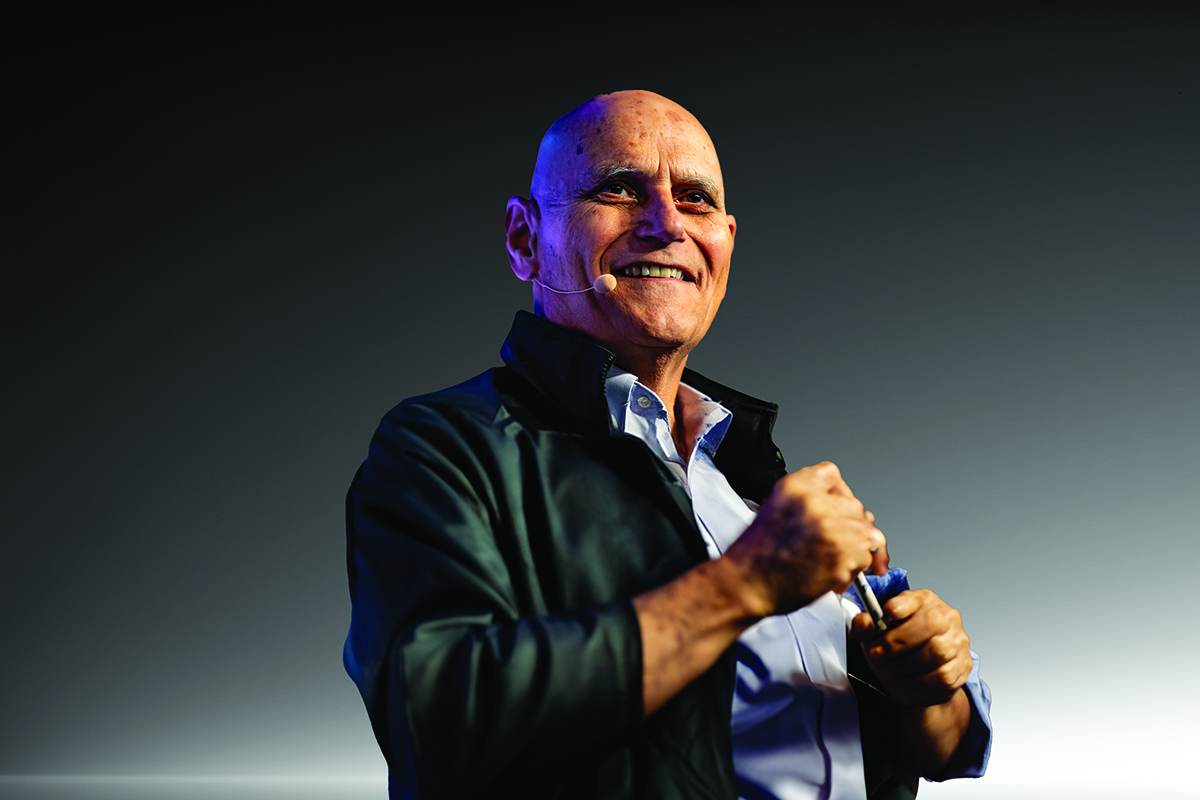 Steven C. Hayes is a Foundation Professor of Psychology Emeritus at the University of Nevada, Reno and President of the Institute for Better Health, a 45 year old charitable organization that promotes quality in mental and behavioral health services. An author of 48 books and over 730 scientific articles, he is especially known for his work on "Acceptance and Commitment Therapy" or “ACT” which is one of the most widely used and researched new methods of psychological intervention over the last 20 years, Relational Frame Theory, the science of language and cognition on which ACT is based, and for Contextual Behavioral Science -- a modern face of behavioral psychology. Dr. Hayes has received several national awards, such as the Lifetime Achievement Award from the Association for Behavioral and Cognitive Therapy, and the Cattell Award from the Association for Psychological Science -- their lifetime achievement award for applied psychology. His popular book "Get Out of Your Mind and Into Your Life" for a time was among the best-selling self-help books in the United States, and his TEDx talks and blogs have been viewed or read by over five million people. Dr. Hayes is ranked among the most cited psychologists in the world.
Steven C. Hayes is a Foundation Professor of Psychology Emeritus at the University of Nevada, Reno and President of the Institute for Better Health, a 45 year old charitable organization that promotes quality in mental and behavioral health services. An author of 48 books and over 730 scientific articles, he is especially known for his work on "Acceptance and Commitment Therapy" or “ACT” which is one of the most widely used and researched new methods of psychological intervention over the last 20 years, Relational Frame Theory, the science of language and cognition on which ACT is based, and for Contextual Behavioral Science -- a modern face of behavioral psychology. Dr. Hayes has received several national awards, such as the Lifetime Achievement Award from the Association for Behavioral and Cognitive Therapy, and the Cattell Award from the Association for Psychological Science -- their lifetime achievement award for applied psychology. His popular book "Get Out of Your Mind and Into Your Life" for a time was among the best-selling self-help books in the United States, and his TEDx talks and blogs have been viewed or read by over five million people. Dr. Hayes is ranked among the most cited psychologists in the world.*1.25 hours of CE credits are available for this session when attended live.
- 3:30 PM GMT | From Clinic Revenue to Research Engine: A Social Enterprise Model for Practice-Based Science - Jason Luoma, Ph.D. & Jenna LeJeune, Ph.D.
3:30 PM - 4:45 PM GMT (what about my timezone?)
Most private mental health clinics operate in fee-for-service environments where immediate reimbursement pressures crowd out the unstructured, collaborative time required for research—leaving the scientist-practitioner ideal largely unrealized outside academia. We present a replicable “clinical-research social business” model that restructures a private practice as a social enterprise aimed at maximizing social good versus maximizing profit, where operating margins are reinvested to underwrite research infrastructure and fund salaried research time. In our implementation at Portland Psychotherapy, profits from clinical and training activities are earmarked for science; clinician-scientists receive fixed, fair salary support for their research FTE to remove monetary contingencies that otherwise bias time toward billable hours. We pair this with streamlined logistics (independent IRB access, research assistants, routine outcome monitoring) to sustain programmatic, practice-relevant studies while improving care quality and staff development. Case examples include trials such as MDMA-assisted therapy for social anxiety and a feasibility study of psilocybin-assisted therapy for chronic pelvic pain, supported by a small, but productive in-house research team (PIs, coordinators, fellows, study therapists, and trained raters) funded through the model. We will specify design principles (governance, budgeting rules, incentive design), practical steps for building capacity, and common pitfalls. Attendees will leave with a clear guidelines on how to convert portions of routine revenue into durable scientific capacity—advancing knowledge while nurturing hearts in everyday practice settings.
Learning Objectives:
- Explain how a clinic can set aside a portion of earnings to support research
- Identify common obstacles to developing a productive practice-based research context
- Describe 3 methods for overcoming common barriers to practice-based research
Presenters:
Jason Luoma, Ph.D.
Jenna LeJeune, Ph.D.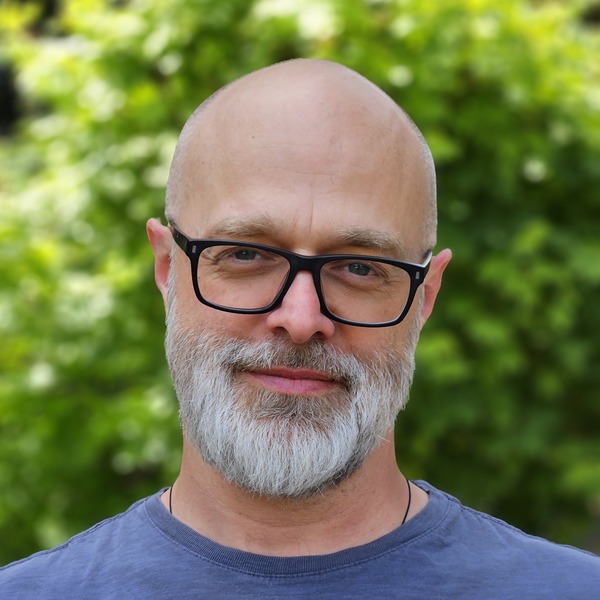 Jason Luoma, PhD, is a clinical scientist and CEO of Portland Psychotherapy Clinic, Research & Training Center. The center follows a simple idea: use part of what the clinic earns to pay for research that improves care. Instead of relying only on grants, the clinic sets aside money and time so studies can happen in the same place people receive therapy. That includes paid research time for clinicians, an independent ethics board to review projects, trained research assistants, and research infrastructure. Current work includes MDMA-assisted therapy for social anxiety disorder and psilocybin-assisted therapy for chronic pelvic pain. Dr. Luoma also directs research at the Portland Institute for Psychedelic Science, is an Associate Scientist at the Oregon Research Institute, and affiliate faculty at OHSU. His research centers on shame, self-stigma, and human connection, and often integrates Acceptance and Commitment Therapy (ACT). He co-founded the Oregon Psilocybin Evaluation Nexus (OPEN), a community effort to study how psilocybin services are unfolding in Oregon. He has authored more than 80 peer reviewed publications mostly in this practice-based context and has co-written two books: Learning ACT and Values in Therapy.
Jason Luoma, PhD, is a clinical scientist and CEO of Portland Psychotherapy Clinic, Research & Training Center. The center follows a simple idea: use part of what the clinic earns to pay for research that improves care. Instead of relying only on grants, the clinic sets aside money and time so studies can happen in the same place people receive therapy. That includes paid research time for clinicians, an independent ethics board to review projects, trained research assistants, and research infrastructure. Current work includes MDMA-assisted therapy for social anxiety disorder and psilocybin-assisted therapy for chronic pelvic pain. Dr. Luoma also directs research at the Portland Institute for Psychedelic Science, is an Associate Scientist at the Oregon Research Institute, and affiliate faculty at OHSU. His research centers on shame, self-stigma, and human connection, and often integrates Acceptance and Commitment Therapy (ACT). He co-founded the Oregon Psilocybin Evaluation Nexus (OPEN), a community effort to study how psilocybin services are unfolding in Oregon. He has authored more than 80 peer reviewed publications mostly in this practice-based context and has co-written two books: Learning ACT and Values in Therapy.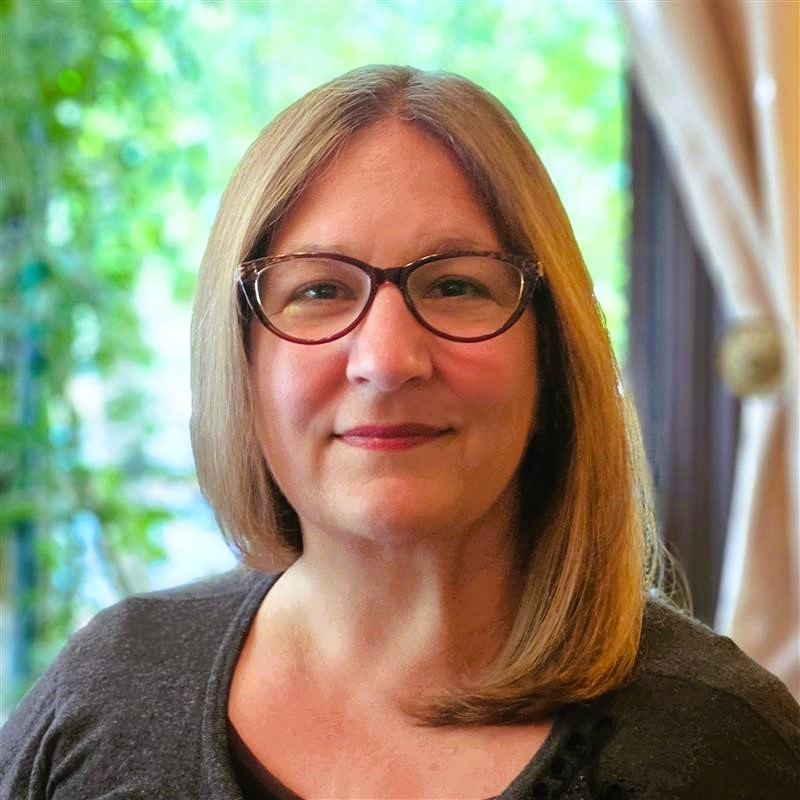 Jenna LeJeune, Ph.D. is President and co-founder of Portland Psychotherapy Clinic, Research and Training Center. She is also a therapist at the Portland Institute for Psychedelic Science where she is involved in various clinical trials involving psychedelic-assisted psychotherapy. As a clinical psychologist trained in the scientist-practitioner model, Dr. LeJeune is primarily a clinician at heart, but deeply appreciates the bidirectional influence of the clinical work and research that she gets to be a part of in her professional life. Her deep interest in issues related to meaning, purpose, belonging, and values is a focus of both her clinical work and her research involvement. She is the co-author of the book Values in Therapy: A Clinician's Guide to Helping Clients Explore Values, Increase Psychological Flexibility, and Live a More Meaningful Life as well as numerous other book chapters, journal articles, and other publications. Dr. LeJeune is also a Fellow of the Association for Contextual Behavioral Science and a peer-reviewed ACT trainer, providing trainings to mental health professionals around the world.
Jenna LeJeune, Ph.D. is President and co-founder of Portland Psychotherapy Clinic, Research and Training Center. She is also a therapist at the Portland Institute for Psychedelic Science where she is involved in various clinical trials involving psychedelic-assisted psychotherapy. As a clinical psychologist trained in the scientist-practitioner model, Dr. LeJeune is primarily a clinician at heart, but deeply appreciates the bidirectional influence of the clinical work and research that she gets to be a part of in her professional life. Her deep interest in issues related to meaning, purpose, belonging, and values is a focus of both her clinical work and her research involvement. She is the co-author of the book Values in Therapy: A Clinician's Guide to Helping Clients Explore Values, Increase Psychological Flexibility, and Live a More Meaningful Life as well as numerous other book chapters, journal articles, and other publications. Dr. LeJeune is also a Fellow of the Association for Contextual Behavioral Science and a peer-reviewed ACT trainer, providing trainings to mental health professionals around the world.*1.25 hours of CE credits are available for this session when attended live.
- 3:30 PM GMT | Advancing research in process-based methods: Workshop on EMA - Eiko Fried, Ph.D.
3:30 PM - 4:45 PM GMT (what about my timezone?)
This workshop introduces participants to contemporary approaches for studying mental health problems as complex biopsychosocial systems. Building on principles from network and systems thinking, we will first explore why the dimension of time is critical for understanding the dynamics of mental health—something well-recognized by clinicians but often underemphasized in research. We will then consider how advances in software and hardware have made it easier and less burdensome to collect intensive longitudinal data through ecological momentary assessment (EMA). This part—EMA research—is at the heart of the workshop. Using examples from a large-scale EMA study to build a personalized early warning system for depression, WARN-D, the workshop will highlight key practical considerations, modern developments, and major challenges in conducting EMA research. While the session will provide theoretical grounding, the emphasis will be on applied insights and hands-on discussion.
Learning Objectives:
- Describe how network and systems approaches conceptualize mental health problems as biopsychosocial systems and why temporal dynamics are essential in this framework.
- Explain how advances in software and hardware have enabled the collection of ecological momentary assessment (EMA) data with reduced participant burden.
- Critically evaluate key practical considerations, emerging opportunities, and major challenges in designing and conducting EMA studies.
Presenter: Eiko Fried, PhD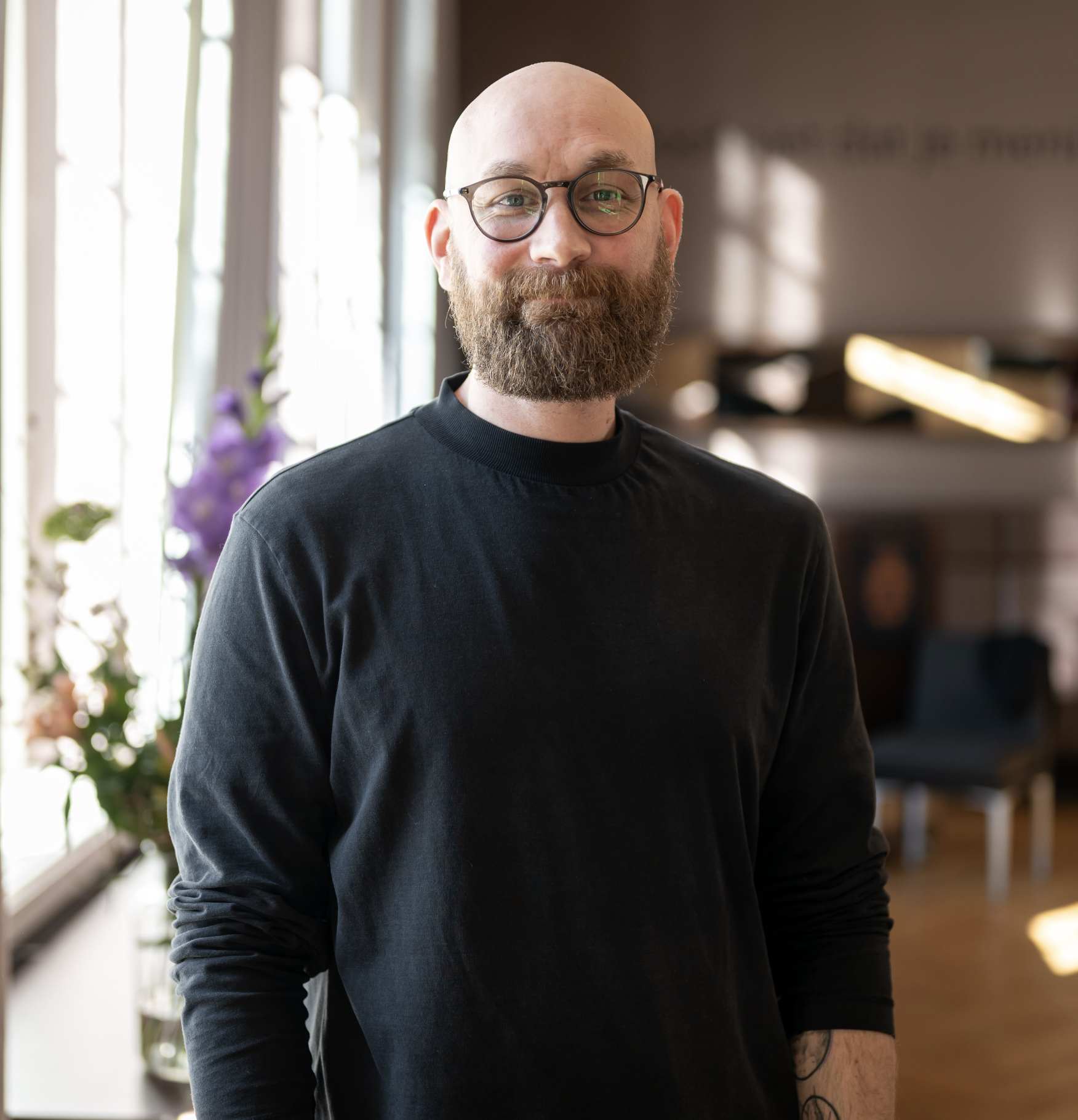 Eiko Fried obtained his PhD in clinical psychology at the Free University of Berlin, followed by four years of postdoctoral training in methodology in Belgium and the Netherlands. He now works as Associate Professor in Clinical Psychology at Leiden University. Eiko’s research takes place at the intersection of mental health science and methodology, and his interests are how to best measure, predict, and understand mental health problems. His lab is currently focused on developing a personalized early warning system for depression (www.warn-d.com). Eiko loves burnt coffee and fast computers, and you can find his blog, publications and data online (www.eiko-fried.com).
Eiko Fried obtained his PhD in clinical psychology at the Free University of Berlin, followed by four years of postdoctoral training in methodology in Belgium and the Netherlands. He now works as Associate Professor in Clinical Psychology at Leiden University. Eiko’s research takes place at the intersection of mental health science and methodology, and his interests are how to best measure, predict, and understand mental health problems. His lab is currently focused on developing a personalized early warning system for depression (www.warn-d.com). Eiko loves burnt coffee and fast computers, and you can find his blog, publications and data online (www.eiko-fried.com).This concurrent session will have a Zoom link separate from the Zoom link you receive to attend all other sessions. The Zoom link for this session will be shared via email 1 hour prior to the session.
*1.25 hours of CE credits are available for this session when attended live.
- 5:00 PM GMT | Context, Culture, and Equity: Advancing CBS/ACT Research in Diverse Global Settings - Kenneth Fung, M.D. FRCPC MSc
5:00 PM - 6:15 PM GMT (what about my timezone?)
Contextual Behavioral Science (CBS) and Acceptance & Commitment Therapy (ACT) are effective interventions that can address a wide variety of human challenges, including psychological issues and beyond. Further, they can foster not only individual but also collective empowerment. This presentation will examine the sociocultural issues that arise in the application of CBS/ACT research from cultural and global mental health perspectives, particularly in low-resource settings. This will include discussion on research methodology, including global mental health (GMH) research principles, implementation science frameworks such as the RE-AIM model, equity considerations such as the Health Equity Impact Assessment Tool to help evaluate planned and unplanned impacts, and cultural analysis and adaptation frameworks such as the Outline for Cultural Formulation (OCF) and the FRAME model. This will be discussed in the context of structural and contextual barriers, stigma, and cultural considerations that influence CBS/ACT interventions and research approaches. The presentation will highlight participatory action approaches (PAA) to ensure community relevance, co-design, and co-delivery with people with lived experience. These strategies promote linguistic and cultural adaptation, reciprocal partnerships, empowerment, and sustainability. The talk will also reflect on the promises and pitfalls of emerging technologies such as ecological momentary assessment (EMA), social network analysis (SNA), and artificial intelligence (AI) for CBS/ACT research.
Learning objectives:
- Identify relevant issues that may be addressed by CBS/ACT from a global health perspective.
- Discuss relevant research principles and methods, including implementation science, equity, and cultural adaptation frameworks.
- Examine challenges and innovations—including participatory action and emerging technologies—that may advance CBS/ACT research in global mental health.
Presenter: Kenneth Fung, M.D. FRCPC MSc
 Dr. Kenneth Fung is Staff Psychiatrist at the Toronto Western Hospital, University Health Network. He is Professor and Director of Global Mental Health with the Department of Psychiatry, University of Toronto. His research, teaching, and clinical interest include both cultural psychiatry and psychotherapy, especially Acceptance and Commitment Therapy (ACT), CBT, and mindfulness, with projects and collaborations locally, nationally, and internationally, including China, Hong Kong, and South Korea. He champions cultural competence and conducts community-based research projects in Asian mental health, stigma, resilience, mental health promotion, trauma, caregivers for children with ASD, immigrant and refugee mental health, and pandemic response. He is the Block Co-coordinator of the Sociocultural Dimensions of Psychiatry for residents at the university and the seminar co-lead and psychotherapy supervisor in Cognitive Behavioral Therapy (CBT ). He is also psychiatric consultant to the Hong Fook Mental Health Association, an ethnospecific mental health organization for East and Southeast Asians.
Dr. Kenneth Fung is Staff Psychiatrist at the Toronto Western Hospital, University Health Network. He is Professor and Director of Global Mental Health with the Department of Psychiatry, University of Toronto. His research, teaching, and clinical interest include both cultural psychiatry and psychotherapy, especially Acceptance and Commitment Therapy (ACT), CBT, and mindfulness, with projects and collaborations locally, nationally, and internationally, including China, Hong Kong, and South Korea. He champions cultural competence and conducts community-based research projects in Asian mental health, stigma, resilience, mental health promotion, trauma, caregivers for children with ASD, immigrant and refugee mental health, and pandemic response. He is the Block Co-coordinator of the Sociocultural Dimensions of Psychiatry for residents at the university and the seminar co-lead and psychotherapy supervisor in Cognitive Behavioral Therapy (CBT ). He is also psychiatric consultant to the Hong Fook Mental Health Association, an ethnospecific mental health organization for East and Southeast Asians. Dr. Fung is Co-chair of the Education Committee of the Society of the Study of Psychiatry and Culture (SSPC), Co-chair of the Cultural Psychiatry Committee of the Group for the Advancement of Psychiatry (GAP), and for the American Psychiatric Association (APA), Member of the Future of DSM Steering Committee, Member of the Council on International Psychiatry and Global Health, and a Mental Health Equity Ambassador. For the Association of Contextual Behavioral Science (ACBS), Co-Lead of the Asian Culture and CBS SIG. He is the Historian of the Federation of Chinese American and Chinese Canadian Medical Societies (FCMS) and a trustee of the Federation of Chinese Canadian Professionals (Ontario).
He is recognized as a Distinguished Fellow of the Canadian Psychiatric Association and the American Psychiatric Association, and Fellow of Association of Contextual Behavioral Science (ACBS). His awards include the 2015 Social Responsibility Award from the University of Toronto Faculty of Medicine; the 2016 American Psychiatric Association Foundation Award for Advancing Minority Health; the 2017 College of Physicians and Surgeons of Ontario Council Award; the 2018 Psychotherapy Award for Academic Excellence from University of Toronto; the 2020 Colin Woolf Award For Sustained Excellence in Teaching; and the 2024 American Psychiatric Association Kun-Po Soo Award, 2025 Chinese Canadian Legend Award, and the Canada 150 Medal.
*1.25 hours of CE credits are available for this session when attended live.
- 6:30 PM GMT | The Future of CBS Research: A Panel Discussion - Jacqueline Pistorello, Ph.D., Steven C. Hayes, Ph.D., Kenneth Fung, M.D., Diana Hill, Ph.D., Jenna LeJeune, Ph.D., & Jason Luoma, Ph.D.
6:30 PM - 7:45 PM GMT (what about my timezone?)
This panel, composed of Drs. Steven C. Hayes, Kenneth Fung, Diana Hill, Jenna LeJeune, and Jason Luoma, will be moderated by Dr. Jacqueline Pistorello and will discuss CBS research writ large. Panelists will be encouraged to “rant, rave, and reimagine” CBS research in the current context. This panel is designed to be a frank conversation which will also be enriched by audience questions in the latter half.
****We would like audience members to submit questions for the panel via the chat. The moderator will select a few to pose to the panel during the second half.
Learning Objectives:
You will be able to:
- List at least two areas in which CBS research has been excelling or is ahead of the field.
- List at least two critiques about the existing CBS research landscape.
- Describe at least two ideas proposed by panel members regarding the conduct of CBS research in the future.
Not available for recorded viewing.
Presenters: Jacqueline Pistorello, Ph.D., Steven C. Hayes, Ph.D., Kenneth Fung, M.D., Diana Hill, Ph.D., Jenna Lejeune, Ph.D., Jason Luoma, Ph.D.
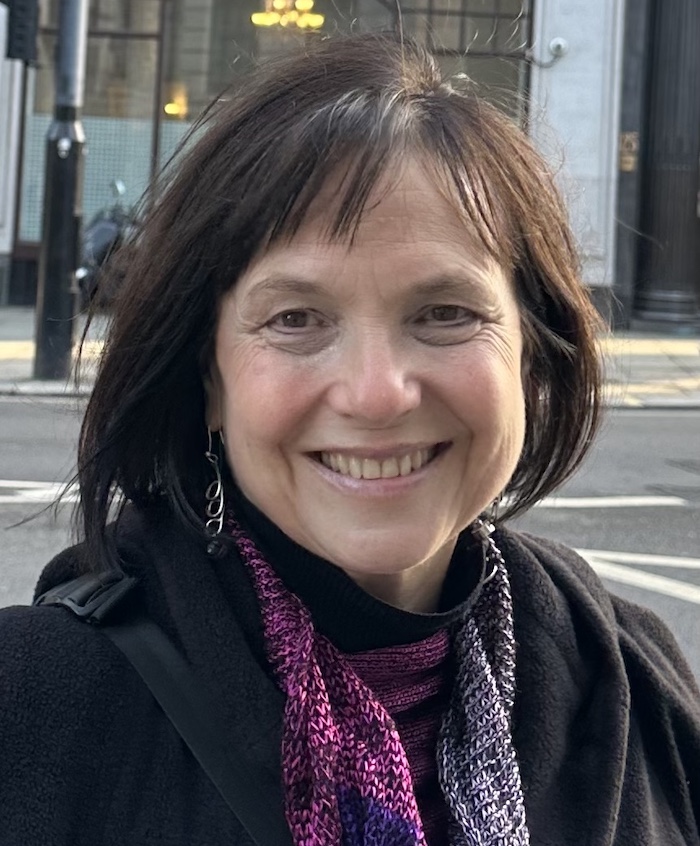 Jacqueline Pistorello, Ph.D. is Faculty Emerita at University of Nevada, Reno (former Counseling Services Director). She remains active as research faculty at Counseling Services, where she has worked with college students for over two decades. She specializes in mindfulness and acceptance-based approaches for treating and preventing mental health problems among university students. She has received multiple grants from the U.S. National Institutes of Health to study the application of psychotherapeutic treatments, including Acceptance and Commitment Therapy (ACT) and Dialectical Behavior Therapy (DBT), towards interventions with college students on campuses. Dr. Pistorello has been interested in understanding how to prevent mental health problems using ACT/RFT as well as how to treat mental health distress in real world settings using more personalized approaches.
Jacqueline Pistorello, Ph.D. is Faculty Emerita at University of Nevada, Reno (former Counseling Services Director). She remains active as research faculty at Counseling Services, where she has worked with college students for over two decades. She specializes in mindfulness and acceptance-based approaches for treating and preventing mental health problems among university students. She has received multiple grants from the U.S. National Institutes of Health to study the application of psychotherapeutic treatments, including Acceptance and Commitment Therapy (ACT) and Dialectical Behavior Therapy (DBT), towards interventions with college students on campuses. Dr. Pistorello has been interested in understanding how to prevent mental health problems using ACT/RFT as well as how to treat mental health distress in real world settings using more personalized approaches. 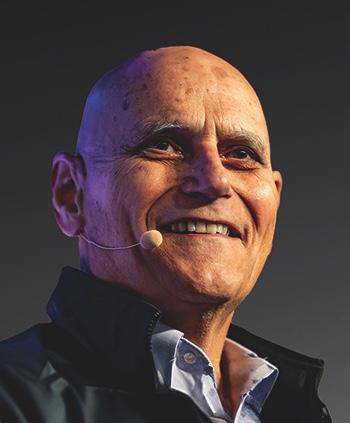 Steven C. Hayes is a Foundation Professor of Psychology Emeritus at the University of Nevada, Reno and President of the Institute for Better Health, a 45 year old charitable organization that promotes quality in mental and behavioral health services. An author of 48 books and over 730 scientific articles, he is especially known for his work on "Acceptance and Commitment Therapy" or “ACT” which is one of the most widely used and researched new methods of psychological intervention over the last 20 years, Relational Frame Theory, the science of language and cognition on which ACT is based, and for Contextual Behavioral Science -- a modern face of behavioral psychology. Dr. Hayes has received several national awards, such as the Lifetime Achievement Award from the Association for Behavioral and Cognitive Therapy, and the Cattell Award from the Association for Psychological Science -- their lifetime achievement award for applied psychology. His popular book "Get Out of Your Mind and Into Your Life" for a time was among the best-selling self-help books in the United States, and his TEDx talks and blogs have been viewed or read by over five million people. Dr. Hayes is ranked among the most cited psychologists in the world.
Steven C. Hayes is a Foundation Professor of Psychology Emeritus at the University of Nevada, Reno and President of the Institute for Better Health, a 45 year old charitable organization that promotes quality in mental and behavioral health services. An author of 48 books and over 730 scientific articles, he is especially known for his work on "Acceptance and Commitment Therapy" or “ACT” which is one of the most widely used and researched new methods of psychological intervention over the last 20 years, Relational Frame Theory, the science of language and cognition on which ACT is based, and for Contextual Behavioral Science -- a modern face of behavioral psychology. Dr. Hayes has received several national awards, such as the Lifetime Achievement Award from the Association for Behavioral and Cognitive Therapy, and the Cattell Award from the Association for Psychological Science -- their lifetime achievement award for applied psychology. His popular book "Get Out of Your Mind and Into Your Life" for a time was among the best-selling self-help books in the United States, and his TEDx talks and blogs have been viewed or read by over five million people. Dr. Hayes is ranked among the most cited psychologists in the world.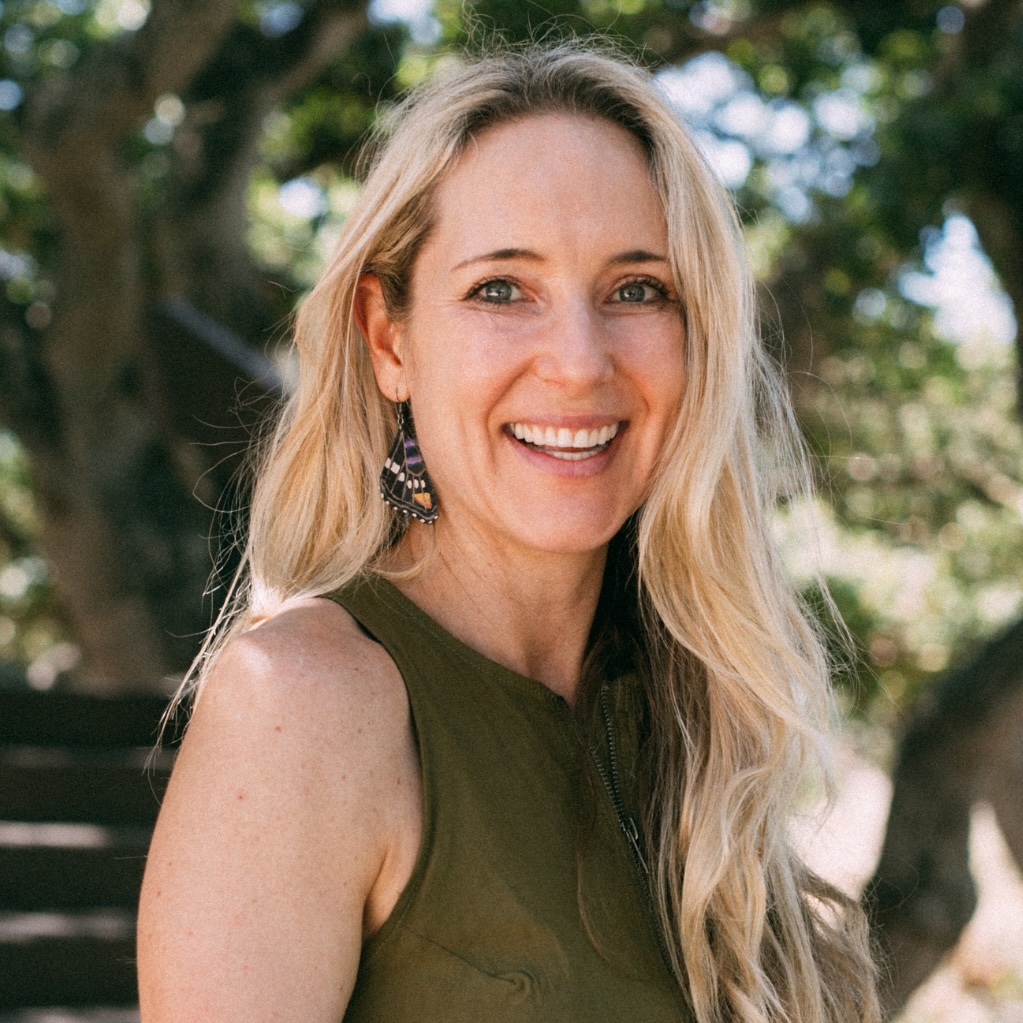 Diana Hill, PhD, is a clinical psychologist, international trainer, and speaker on Acceptance and Commitment Therapy (ACT) and compassion. Host of the Wise Effort podcast and author of several books, including "The ACT Daily Journal" and the forthcoming "Wise Effort", she helps individuals and organizations cultivate psychological flexibility to focus on what matters most. Dr. Hill has researched mindfulness-based interventions, directed ACT-based treatment programs, serves on the board of the Institute for Better Health, and contributes to outlets such as Psychology Today and Mindful.org. She has been featured in major media including the Wall Street Journal and NPR, and brings her work to life as a mom of two boys and a bee guardian.
Diana Hill, PhD, is a clinical psychologist, international trainer, and speaker on Acceptance and Commitment Therapy (ACT) and compassion. Host of the Wise Effort podcast and author of several books, including "The ACT Daily Journal" and the forthcoming "Wise Effort", she helps individuals and organizations cultivate psychological flexibility to focus on what matters most. Dr. Hill has researched mindfulness-based interventions, directed ACT-based treatment programs, serves on the board of the Institute for Better Health, and contributes to outlets such as Psychology Today and Mindful.org. She has been featured in major media including the Wall Street Journal and NPR, and brings her work to life as a mom of two boys and a bee guardian. Jason Luoma, PhD, is a clinical scientist and CEO of Portland Psychotherapy Clinic, Research & Training Center. The center follows a simple idea: use part of what the clinic earns to pay for research that improves care. Instead of relying only on grants, the clinic sets aside money and time so studies can happen in the same place people receive therapy. That includes paid research time for clinicians, an independent ethics board to review projects, trained research assistants, and research infrastructure. Current work includes MDMA-assisted therapy for social anxiety disorder and psilocybin-assisted therapy for chronic pelvic pain. Dr. Luoma also directs research at the Portland Institute for Psychedelic Science, is an Associate Scientist at the Oregon Research Institute, and affiliate faculty at OHSU. His research centers on shame, self-stigma, and human connection, and often integrates Acceptance and Commitment Therapy (ACT). He co-founded the Oregon Psilocybin Evaluation Nexus (OPEN), a community effort to study how psilocybin services are unfolding in Oregon. He has authored more than 80 peer reviewed publications mostly in this practice-based context and has co-written two books: Learning ACT and Values in Therapy.
Jason Luoma, PhD, is a clinical scientist and CEO of Portland Psychotherapy Clinic, Research & Training Center. The center follows a simple idea: use part of what the clinic earns to pay for research that improves care. Instead of relying only on grants, the clinic sets aside money and time so studies can happen in the same place people receive therapy. That includes paid research time for clinicians, an independent ethics board to review projects, trained research assistants, and research infrastructure. Current work includes MDMA-assisted therapy for social anxiety disorder and psilocybin-assisted therapy for chronic pelvic pain. Dr. Luoma also directs research at the Portland Institute for Psychedelic Science, is an Associate Scientist at the Oregon Research Institute, and affiliate faculty at OHSU. His research centers on shame, self-stigma, and human connection, and often integrates Acceptance and Commitment Therapy (ACT). He co-founded the Oregon Psilocybin Evaluation Nexus (OPEN), a community effort to study how psilocybin services are unfolding in Oregon. He has authored more than 80 peer reviewed publications mostly in this practice-based context and has co-written two books: Learning ACT and Values in Therapy. Jenna LeJeune, Ph.D. is President and co-founder of Portland Psychotherapy Clinic, Research and Training Center. She is also a therapist at the Portland Institute for Psychedelic Science where she is involved in various clinical trials involving psychedelic-assisted psychotherapy. As a clinical psychologist trained in the scientist-practitioner model, Dr. LeJeune is primarily a clinician at heart, but deeply appreciates the bidirectional influence of the clinical work and research that she gets to be a part of in her professional life. Her deep interest in issues related to meaning, purpose, belonging, and values is a focus of both her clinical work and her research involvement. She is the co-author of the book Values in Therapy: A Clinician's Guide to Helping Clients Explore Values, Increase Psychological Flexibility, and Live a More Meaningful Life as well as numerous other book chapters, journal articles, and other publications. Dr. LeJeune is also a Fellow of the Association for Contextual Behavioral Science and a peer-reviewed ACT trainer, providing trainings to mental health professionals around the world.
Jenna LeJeune, Ph.D. is President and co-founder of Portland Psychotherapy Clinic, Research and Training Center. She is also a therapist at the Portland Institute for Psychedelic Science where she is involved in various clinical trials involving psychedelic-assisted psychotherapy. As a clinical psychologist trained in the scientist-practitioner model, Dr. LeJeune is primarily a clinician at heart, but deeply appreciates the bidirectional influence of the clinical work and research that she gets to be a part of in her professional life. Her deep interest in issues related to meaning, purpose, belonging, and values is a focus of both her clinical work and her research involvement. She is the co-author of the book Values in Therapy: A Clinician's Guide to Helping Clients Explore Values, Increase Psychological Flexibility, and Live a More Meaningful Life as well as numerous other book chapters, journal articles, and other publications. Dr. LeJeune is also a Fellow of the Association for Contextual Behavioral Science and a peer-reviewed ACT trainer, providing trainings to mental health professionals around the world. Dr. Kenneth Fung is Staff Psychiatrist at the Toronto Western Hospital, University Health Network. He is Professor and Director of Global Mental Health with the Department of Psychiatry, University of Toronto. His research, teaching, and clinical interest include both cultural psychiatry and psychotherapy, especially Acceptance and Commitment Therapy (ACT), CBT, and mindfulness, with projects and collaborations locally, nationally, and internationally, including China, Hong Kong, and South Korea. He champions cultural competence and conducts community-based research projects in Asian mental health, stigma, resilience, mental health promotion, trauma, caregivers for children with ASD, immigrant and refugee mental health, and pandemic response. He is the Block Co-coordinator of the Sociocultural Dimensions of Psychiatry for residents at the university and the seminar co-lead and psychotherapy supervisor in Cognitive Behavioral Therapy (CBT ). He is also psychiatric consultant to the Hong Fook Mental Health Association, an ethnospecific mental health organization for East and Southeast Asians.
Dr. Kenneth Fung is Staff Psychiatrist at the Toronto Western Hospital, University Health Network. He is Professor and Director of Global Mental Health with the Department of Psychiatry, University of Toronto. His research, teaching, and clinical interest include both cultural psychiatry and psychotherapy, especially Acceptance and Commitment Therapy (ACT), CBT, and mindfulness, with projects and collaborations locally, nationally, and internationally, including China, Hong Kong, and South Korea. He champions cultural competence and conducts community-based research projects in Asian mental health, stigma, resilience, mental health promotion, trauma, caregivers for children with ASD, immigrant and refugee mental health, and pandemic response. He is the Block Co-coordinator of the Sociocultural Dimensions of Psychiatry for residents at the university and the seminar co-lead and psychotherapy supervisor in Cognitive Behavioral Therapy (CBT ). He is also psychiatric consultant to the Hong Fook Mental Health Association, an ethnospecific mental health organization for East and Southeast Asians. *1.25 hours of CE credits are available for this session when attended live.
- 8:00 PM GMT | IGNITES - 5 minute presentations that will inspire you!
8:00 PM -9:00 PM GMT (what about my timezone?)
Bridging Gaps: Innovating ACT and Peer Support for Caregivers in Peru
Presenter: Gaby SanzReimagining Collaboration with the Collaborative Action and Reflection Toolkit (CART)
Presenter: Jessica MatusOh Dear Self, I think it is time we learned more about you.
Presenter: Alexander SimmonsRolling for Values: Therapeutic Role-Playing Games as ACT Interventions
Presenter: Ashton NicewongerSelf-Nurturance for Caregivers: An ACT Intervention
Presenter: Hannah SternbergACTivism for Authoritarian Anxiety
Presenter: Devin GuthrieTailoring ACT to rural-dwelling Veterans with cardiovascular disease: integrating flexibility into brief behavior change interventions
Presenter: Emily ThomasStorytelling Across the Hexaflex
Presenter: Jared Broussard*Continuing education credit not available for this session.

